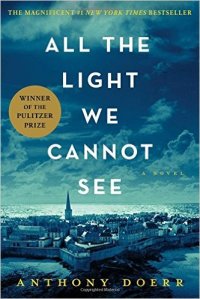The book club I belong to works like this: We aim to have 12 members. Each member selects a book they would like the club to read. These books then form a list of 12, one for each month of the year. Everyone buys/borrows their own copies of all the books and when it is your book and your month you host the club, and you conduct the discussion.
 Possession by AS Byatt was the book for May – my selection. Good decision, yes? Hmm, I don’t think so. For one thing it was 511 pages long. According to Ten Ways to win the Booker prize (http://bit.ly/2scYmlC) by Mona Chalabi and George Arnett, 374 pages is an average for a Man Booker winner. For another thing, the book was full of poetry. This proved to be a good and a bad thing. One book club member ‘loved’ the poetry, while most of the rest skipped this part in favour of the plot. Gasp, skipped some pages!? Well, since I was conducting the discussion I didn’t skip. I slogged my way through which meant that by the time I’d read the book, prepared the discussion, baked the food and cleaned my house I was exhausted.
Possession by AS Byatt was the book for May – my selection. Good decision, yes? Hmm, I don’t think so. For one thing it was 511 pages long. According to Ten Ways to win the Booker prize (http://bit.ly/2scYmlC) by Mona Chalabi and George Arnett, 374 pages is an average for a Man Booker winner. For another thing, the book was full of poetry. This proved to be a good and a bad thing. One book club member ‘loved’ the poetry, while most of the rest skipped this part in favour of the plot. Gasp, skipped some pages!? Well, since I was conducting the discussion I didn’t skip. I slogged my way through which meant that by the time I’d read the book, prepared the discussion, baked the food and cleaned my house I was exhausted.
But wasn’t Possession an excellent choice because it was a Man Booker winner? Not necessarily. For us anyway. In the ensuing discussion it turned out that most of us (South Africans) didn’t like the works of JM Coetzee, another Man Booker Prize winner. This got me thinking about how books are selected for this prestigious prize (which carries a top winnings of GBP 50,000). Ten Ways to win the Booker prize (http://bit.ly/2scYmlC) says to win: you can’t be too young; you should choose a short title; get a private education; study at Oxford; be a man (if possible); write about death loads and love a fair bit; and get published with Jonathan Cape.
Well there you have it. I must say I hadn’t chosen Possession because I knew its author AS Byatt was a Booker winner. I didn’t (know she was a winner). I chose it because the blurb made it sound so exciting. ‘Possession is an exhilarating novel of wit and romance…. A novel for every taste…. You turn the last page feeling stunned and elated, happy to have had the chance to read it.’ It wasn’t (exciting). For me, at any rate. Which just goes to show that: 1) It wasn’t a novel for every taste. And, 2) Booker prize recommendations and blurbs don’t necessarily equal books that everyone will enjoy.
Onto the next booker prize winning book for next month: The God of Small Things by Arundhati Roy (this author writes about death loads…).

